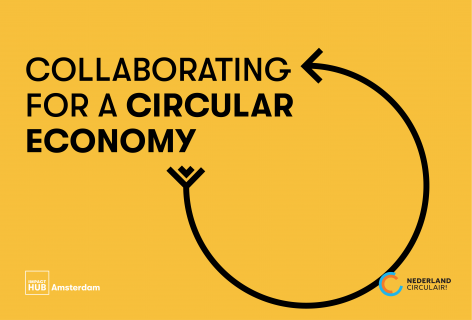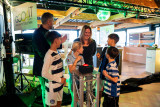After 2018’s sold out edition, we are pleased to invite you to the 2019 edition of our circular collaboration event during the Week of the Circular Economy.
Join us to find out about the benefits and challenges of circular collaboration from two startup-corporate partnerships (Instock & Albert Heijn | Plastic Whale & Vepa), as well as the partnership of Cepezed (architecture firm for spatial design) and Albron (largest Dutch food caterer).
Their circular collaboration stories will focus on:
– Creating a circular and waste-free food system by turning surplus produce into delicious meals | Cees van Vliet, Albert Heijn’s Director of Stores & Distributions, and Instock co-founder Freke van Nimwegen.
– Building circular furniture from plastic waste collected from Amsterdam’s canals | Polianne van Oord, Relationship Manager Circular Furniture at Plastic Whale, and Vepa Director Janwillem de Kam.
– Co-developing the Green House, one of the most circular Dutch buildings, which operates as a restaurant, urban farm and community centre | Cepezed Architect Jaap Bosch and Albron‘s Business Development Manager Ernest van de Voort.
Rozanne Henzen and Hilde van der Schans from De Nationale Denktank (National Think Tank) will wrap up with a short reflection, drawing from their 2018 research on how to accelerate the circular economy in the Netherlands.
We will round off this inspiring event with celebratory drinks and raise a glass to building the new economy together!
- What Impact Hub does on circularity -
As Impact Hub, we build impact ecosystems to solve societal issues through entrepreneurial solutions, particularly in the areas of food, plastics and circularity.
To accelerate the transition to a circular economy, we help build a circular community and network, design circular knowledge sharing events, run accelerators for circular innovations, scout the best circular entrepreneurs, and develop strong partnerships.
Among our recent collaborations is our partnership with the Province of Noord-Holland, which aims to become fully circular by 2050.




